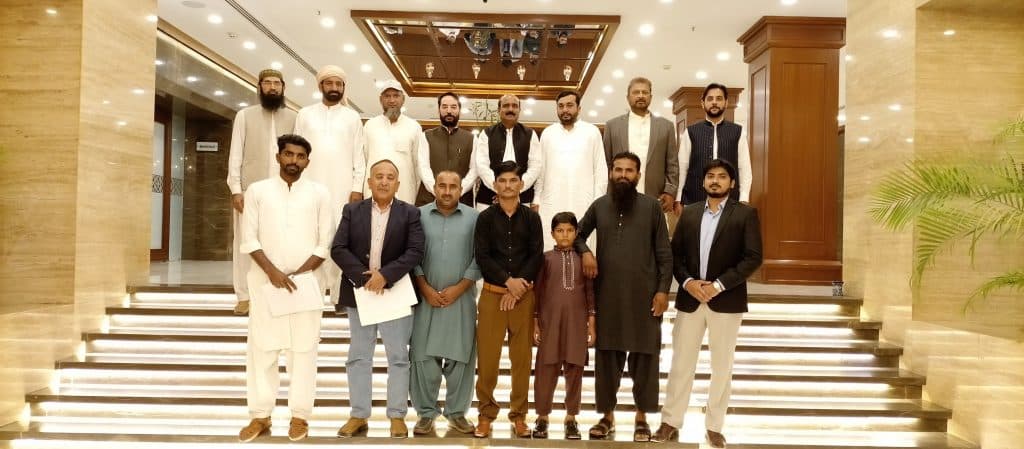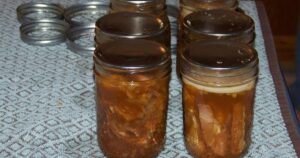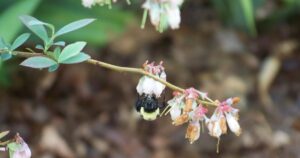
Innovative climate adoptive agriculture 1024x449.jpg
Climate change is a harsh reality. Pakistan is among the top ten countries which are severely facing the effects of climate change.
The country is an agriculture based economy and earning 19 percent of the GDP from agriculture sector. In current scenario of COVID
pandemic whole world’s economy is struggling with economic and food crises. Due to climate change there are challenges of food security
and production in Pakistan while COVID pandemic worsen the situation.
In all the challenges, it has become the matter of survival to seek the new horizon of innovation and commercialization in agriculture.
As the conventional agriculture is not efficiently immune to cater the mass of current challenges. In Pakistan, the agriculture whole sale market is
volatile in nature. In all these scenarios, the small farmers facing drastic crises of finance and production. These small farmers make more
than the 60 percent of the country’s farming community.
To analyze and discuss the solution for the challenges and to train the farmers a training workshop with the agenda of “Innovation and
Commercialization in Agriculture” was held in Multan at Ramada Hotel. The participants from the eminent backgrounds were responsible
farmers. The workshop was organized by “Agro Consultant Zia“. Mr. Sayyed Zia Hussain hosted the event and also served as the trainer.
Other trainers were Dr. Shehbaz from “Serbuland Pakistan” and Mr. M. Safeer Abbas Jafrey from “Agri. Education Pakistan“.
Mr. Sayyed Zia Hussain presented the wheat management plan which included wheat fertilizer and wheat pesticide plans. Wheat is a staple
food and crucial for country’s economy and food security, said Mr. Zia. He briefed the cost effective fertilizer plan for wheat crop which was
highly appreciated by the participants as it is need of the time because of the high prices of fertilizers in the market. Mr. Zia urged the
participants to stop the use of DAP (Di Ammonium Phosphate) fertilizer which is thought to be important fertilizer in conventional farming.
He said that the high fixation and low availability rate in soil DAP is not suitable for the soils having higher pH level. The idea and motivation
about biological control labs was delivered by Mr. Zia during the session of commercialization.
Dr. Shehbaz talked about the efficient soil management for higher crop yield. He discussed about the natural farming and sustainable
techniques. Conventional farming is not more in the position to ensure the profit in sustainable manners, said by Mr. Safeer Jafrey. He
further delivered the information about the farming and profitability of non-conventional crops like; chia, quinoa, avocado, mushroom and
medicinal plants etc. The consultancy and research services of Agri. Education Pakistan was also discussed during the session.
The new farming methods or non-conventional farming is more resilient against pest and crop diseases, climate adoptive and sustainably
profitable, concluded by Mr. Safeer Jafrey. The participants appreciated the knowledge delivered by the trainers and showed confidence to
follow the teachings of workshop.
This was the second paid workshop of the series held in Multan at Ramada Hotel. The first workshop was arranged in Hyderabad.

Source link
2021-11-04 05:38:52
Karl Hoffman is a distinguished agriculturalist with over four decades of experience in sustainable farming practices. He holds a Ph.D. in Agronomy from Cornell University and has made significant contributions as a professor at Iowa State University. Hoffman’s groundbreaking research on integrated pest management and soil health has revolutionized modern agriculture. As a respected farm journalist, his column “Field Notes with Karl Hoffman” and his blog “The Modern Farmer” provide insightful, practical advice to a global audience. Hoffman’s work with the USDA and the United Nations FAO has enhanced food security worldwide. His awards include the USDA’s Distinguished Service Award and the World Food Prize, reflecting his profound impact on agriculture and sustainability.






Life is a classroom, and learning is a lifelong adventure. ??